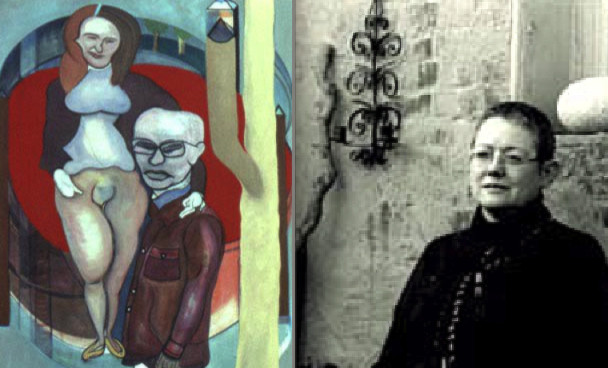
Martha King on reading Paul Blackburn
From Jacket #12 (July 2000)

Note: This article by Martha King was based on a presentation she gave at a panel on Paul Blackburn, at the Poetry Project in New York, in 1991 [?]. Other panelists included Armand Schwerner, Edith Jarolim, Robert Creeley, and David Abel. (The references are to Edie Jarolim’s edition of Blackburn’s Collected Poems.)
When I told Basil [King] I’d been asked to talk on Paul at this panel he asked me what I wanted to say — we were walking down the street in our Brooklyn neighborhood — my answer popped out: ‘that strange hollow voiced singer of the city.’ On the theory that first thought might just be best, I’ll start there.
So why was my first thought “hollow.” It means empty in the middle. Like the woodwinds. Their sound comes from that. It’s a very old thing to think of a poet as a reed. Missing at the core. And therefore what is taken in will be released reverberating, as song.
But Blackburn’s been savagely critiqued for this quality. By people who have freely crossed the lines between reading the text and psychoanalyzing the writer. I mean even to the unbelievably grotesque suggestion — by Clayton Eshleman in his essay “The Gull Wall” — that Paul wouldn’t have died of cancer if he’d been able to overcome his negative feelings about women.
Lord save us from such trash. Not only because it’s unseemly, and redolent of hackneyed superstitions about disease, but also because it obscures something wonderful Blackburn’s poems give his readers. It also happens to be an aspect of the poet’s traditional function, of what happens between certain poets and their readers, though it also has to do with a quality that has a rather bad rep in Church of Popular Psychology. Call it being a voyeur. Hollow at the core. One who watches — from the sidelines. Eavesdropper. Peeping Tom. The Brass Eye.
[Click here to read the rest of the essay.]